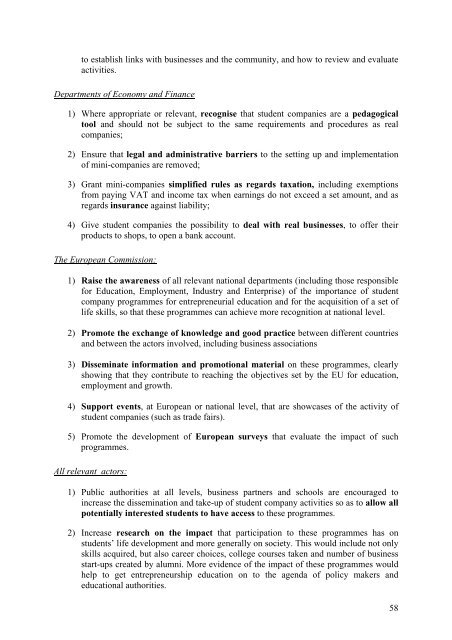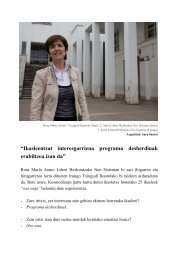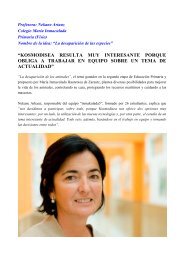Final Report of the Expert Group - European Commission - Europa
Final Report of the Expert Group - European Commission - Europa
Final Report of the Expert Group - European Commission - Europa
You also want an ePaper? Increase the reach of your titles
YUMPU automatically turns print PDFs into web optimized ePapers that Google loves.
to establish links with businesses and <strong>the</strong> community, and how to review and evaluateactivities.Departments <strong>of</strong> Economy and Finance1) Where appropriate or relevant, recognise that student companies are a pedagogicaltool and should not be subject to <strong>the</strong> same requirements and procedures as realcompanies;2) Ensure that legal and administrative barriers to <strong>the</strong> setting up and implementation<strong>of</strong> mini-companies are removed;3) Grant mini-companies simplified rules as regards taxation, including exemptionsfrom paying VAT and income tax when earnings do not exceed a set amount, and asregards insurance against liability;4) Give student companies <strong>the</strong> possibility to deal with real businesses, to <strong>of</strong>fer <strong>the</strong>irproducts to shops, to open a bank account.The <strong>European</strong> <strong>Commission</strong>:1) Raise <strong>the</strong> awareness <strong>of</strong> all relevant national departments (including those responsiblefor Education, Employment, Industry and Enterprise) <strong>of</strong> <strong>the</strong> importance <strong>of</strong> studentcompany programmes for entrepreneurial education and for <strong>the</strong> acquisition <strong>of</strong> a set <strong>of</strong>life skills, so that <strong>the</strong>se programmes can achieve more recognition at national level.2) Promote <strong>the</strong> exchange <strong>of</strong> knowledge and good practice between different countriesand between <strong>the</strong> actors involved, including business associations3) Disseminate information and promotional material on <strong>the</strong>se programmes, clearlyshowing that <strong>the</strong>y contribute to reaching <strong>the</strong> objectives set by <strong>the</strong> EU for education,employment and growth.4) Support events, at <strong>European</strong> or national level, that are showcases <strong>of</strong> <strong>the</strong> activity <strong>of</strong>student companies (such as trade fairs).5) Promote <strong>the</strong> development <strong>of</strong> <strong>European</strong> surveys that evaluate <strong>the</strong> impact <strong>of</strong> suchprogrammes.All relevant actors:1) Public authorities at all levels, business partners and schools are encouraged toincrease <strong>the</strong> dissemination and take-up <strong>of</strong> student company activities so as to allow allpotentially interested students to have access to <strong>the</strong>se programmes.2) Increase research on <strong>the</strong> impact that participation to <strong>the</strong>se programmes has onstudents’ life development and more generally on society. This would include not onlyskills acquired, but also career choices, college courses taken and number <strong>of</strong> businessstart-ups created by alumni. More evidence <strong>of</strong> <strong>the</strong> impact <strong>of</strong> <strong>the</strong>se programmes wouldhelp to get entrepreneurship education on to <strong>the</strong> agenda <strong>of</strong> policy makers andeducational authorities.58




